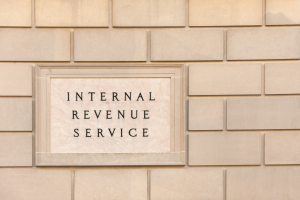FSA
Is your benefits administrator not living up to your standards? Are customer service let-downs and reimbursement problems giving you headaches? Are you worried about sticking it out until your next renewal? Well, worry no more! You don’t need to wait until your next renewal to find a better benefits administrator.
The Internal Revenue Service (IRS) recently released Notice 2021-15 which supplements legislation that was included in the Consolidated Appropriations Act, 2021 pertaining to new, temporary options employers can implement to their Health and Dependent Care Flexible Spending Accounts (Health FSAs and Dependent Care FSAs).
Health Savings Accounts (HSAs) are one of the fastest-growing employee benefits-and for good reason! There's no other vehicle under the tax code that has the kind of preferential treatment that HSAs provide. Stacking HSAs with an HRA or FSA maximizes both employer and employee tax savings and gives employees more flexibility to pay for current healthcare needs and save for future needs.
President Donald Trump signed a new stimulus bill into law on December 27, 2020 which will provide direct payments to eligible individuals and loans to small businesses, among other things. Among those other things are temporary and optional changes that employers can implement to Health and Dependent Care Flexible Spending Accounts (Health FSAs and Dependent Care FSAs).
The Internal Revenue Service (IRS) released Rev. Proc. 2020-45 on October 26th with 2021 inflation adjustments for various provisions of the Internal Revenue Code (the “Code”). Included in the announcement are maximum contribution limits for Flexible Spending Accounts (FSAs) and other employee benefit programs. A summary of some of the 2021 contribution limits has been provided below.
Technology has influenced employee behavior and changed expectations. They are no longer comparing good and services, but instead experiences. As a result, they are demanding innovation, engagement, and personalization across every aspect of thier lives, including healthcare.
As healthcare costs continue to rise, consumers are becoming increasingly responsible for out-of-pocket expenses, regardless of their health plan type. By pairing every health plan with a consumer-driven account, your clients will not only save money but also provide their employees with a better way to manage their healthcare spending.
In just a very short period of time, the Coronavirus Disease (COVID-19) is impacting health plans and health care throughout the country. Here are some key examples of recent developments:










